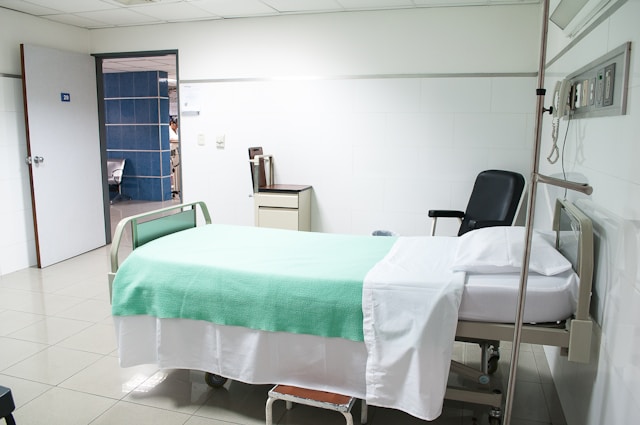As a veteran, accessing quality health care is a critical priority. However, navigating the complexities of the American health care system can be daunting. With the increasing prevalence of telemedicine and virtual health services, many veterans are left wondering: Can you access quality health care services anywhere? In this article, we will explore the availability of veteran health care services and the options available to ensure comprehensive and accessible care for those who have served our country.
Heading 1: Understanding the Challenges of Accessing Veteran Health Care
Veterans face numerous challenges when it comes to accessing health care services. From long wait times to limited availability of specialized care, navigating the VA health care system can often be a frustrating and complicated process. In addition, many veterans live in rural areas where access to medical facilities is limited, making it even more difficult to receive the care they need in a timely manner.
Furthermore, the lack of awareness about available services and eligibility requirements can also pose a barrier to veterans seeking health care. It is essential for veterans to be informed about the resources and support systems available to them, as well as their rights and benefits as former service members. By understanding the challenges of accessing veteran health care, we can work towards improving the system and ensuring that all veterans have access to the care they deserve.
Heading 2: Exploring the Limitations of Veteran Health Care Availability
When it comes to accessing health care services as a veteran, there are often limitations that can impact the availability of care. One of the main challenges that veterans face is the geographical restrictions of veteran health care facilities. Depending on where a veteran is located, they may not have easy access to a VA hospital or clinic, leading to delays in receiving necessary medical treatment.
Another limitation of veteran health care availability is the long wait times that many veterans experience when trying to schedule appointments or receive specialized care. These delays can be frustrating and can potentially exacerbate existing health conditions. It is essential for the VA to address these issues to ensure that all veterans have timely access to the care they need.
Heading 3: Overcoming Barriers to Accessing Veteran Health Care Services
As a veteran, accessing quality health care services can sometimes feel like navigating a maze of barriers. From long wait times to limited provider options, the process of accessing veteran health care can be overwhelming. However, with the right information and resources, these barriers can be overcome.
One way to improve access to veteran health care services is by utilizing telehealth options. Through telehealth, veterans have the ability to connect with healthcare providers remotely, allowing for more flexibility and convenience in receiving care. Additionally, expanding access to community-based organizations and resources can provide veterans with additional support and services to address their unique health needs.
Heading 4: Enhancing Veteran Health Care Accessibility: Key Recommendations
When it comes to enhancing veteran health care accessibility, there are several key recommendations that can make a significant impact. One of the most important factors is improving the availability of services, ensuring that veterans can access the care they need wherever they are located. This can be achieved through the expansion of telehealth services, which allow veterans to connect with healthcare providers remotely.
Additionally, creating partnerships with local healthcare facilities and providers can help to ensure that veterans have access to a wide range of services close to home. By expanding access to mental health services, increasing the availability of specialized care for conditions such as PTSD and traumatic brain injury, and streamlining the appointment scheduling process, we can make it easier for veterans to receive the care they need when they need it.

Heading 5: Leveraging Technology to Improve Veteran Health Care Access
Technology has revolutionized various industries, including the field of healthcare. For veterans, leveraging technology can greatly enhance their access to quality healthcare services. Through the use of telemedicine, veterans can now receive medical consultations and advice from healthcare providers without the need to travel long distances to visit a clinic or hospital. This not only saves time and money but also ensures that veterans can access essential healthcare services from the comfort of their own homes.
Furthermore, technology has enabled healthcare providers to streamline their processes and improve communication with veterans. Electronic health records make it easier for healthcare professionals to access and share relevant medical information, leading to more efficient and coordinated care. With the use of mobile health apps, veterans can also track their health metrics, schedule appointments, and receive reminders for medication, ensuring that they stay on top of their health goals. By leveraging technology, veteran health care access can be improved significantly, making it more convenient and efficient for those who have served our country.
In Summary
access to veteran health care is a vital and essential component of ensuring the well-being of our nation’s heroes. While advancements have been made to improve availability in recent years, there are still challenges that must be addressed to ensure that veterans can access the care they need anytime, anywhere. By continuing to advocate for improved access and supporting policies that prioritize the health and well-being of our veterans, we can work towards a future where all those who have served our country have access to the quality care they deserve. Thank you for reading and stay informed on this important issue.


